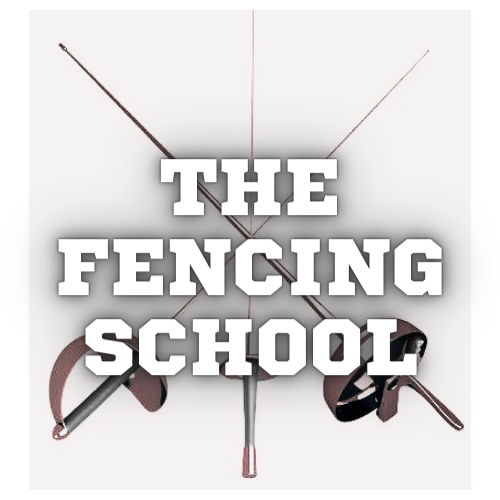
Fencing
Along with running, cycling, swimming, and gymnastics, fencing was in the first Olympics and has been featured in every modern Olympics since. The three disciplines of modern fencing are the foil, the épée, and the sabre (also saber). The object of fencing is to score a point by hitting your opponent’s target without them hitting you, but each weapon also employs its own separate rules, strategies, and target areas.
Fencing is often referred to as a physical game of chess as it requires both physical prowess and mental ability. Physically, fencing develops quickness, flexibility, coordination, and strength. Because the sport requires a fair amount of physical exertion, fencing is a great way to improve general fitness. Even more so, fencing is a mental game, requiring fencers to predict their opponents move and use the element of surprise in every encounter.
At The Fencing School, students participating in classes are taught sportsmanship towards other fencers and respect for the safety rules. Students can build their confidence through learning the sport and developing their skills. Fencers will get an opportunity to fence with other students. They will be taught the footwork, handwork, and strategies needed to build their ability to win. Fencers will also practice fun and challenging physical fencing exercises and strategy fencing training.
USA Fencing: Learn to Fence
USA Fencing: Olympians
USA Fencing
Please visit USA Fencing for more information!
Fencing Tournaments
Fencers should enter fencing tournaments once they have taken a combination of few months of electric fencing classes and private lessons. Please speak with the coach about your interest to compete. On average, students normally take 6-18months before they decide to enter a tournament. Competitions exist for all age categories, including events in Y8, Y10, Y12, Y14, Cadet (Y16), Junior (Y19), Vet 40+ Vet 50+ Vet 60+, and Divisions I, II, III (All ages 13+).
Local Tournaments
Local Club Tournaments are listed on AskFred.net. FRED stands for "Fencing Results and Events Database" and is a self-serve service for fencing tournament organizers and fencers to coordinate participation in Tournaments. Students who are looking to become competitive should attend these tournaments first.
Local Club Tournaments - AskFred.net
Regional Tournaments
Regional Tournaments and provide opportunities fencers to gain competitive experience at a level below National level. These competitions are one of the possible qualification paths for North American Cups and the annual USA Fencing National Championships. However, there are no national points awarded (except for SYCs, which do award points). Virginia fencers are located in Region 6. Students should attend these tournaments if they place well in local tournaments.
2022-2023 Regional Tournament Schedule
Regional Tournament Search
National Tournaments
North American Cups (NAC), Junior Olympics, and Summer Nationals are National level competitions that award national points. Students competing in national tournaments should have at least 1-2 years of practice and be performing well in regional tournaments.
2022-2023 National Tournament Schedule
National Tournament Search
Fencing Ratings (A, B, C, D, E, U)
USA Fencing ranks fencers with letters, “A” through “U”. These classifications “ratings” can be earned in any fencing tournament. Fencers ranked “U” are unrated. Rankings are used for pre-seeding selection at tournaments and give you a better standing in your initial pool bouts.
USA Fencing Classification Chart
Other Resources
Virginia Division - Local/Regional Information
Fencing Parents - Helpful Guide for Parents
USA Fencing Rulebook
If you are interested in competitive fencing or have any related questions, please Contact The Fencing School of VA
NCAA Division I Schools
Boston College
Brown University (women only)
Cleveland State University
Columbia University
Cornell University (women only)
Duke University
Fairleigh Dickinson University (women only)
Harvard University
Lafayette College
Long Island University
New Jersey Institute of Technology
Northwestern University (women only)
Ohio State University
Pennsylvania State University
Princeton University
Sacred Heart University
Stanford University
St. John’s University
Temple University (women only)
United States Air Force Academy
University of California, San Diego
University of Detroit Mercy
University of Incarnate Word
University of North Carolina, Chapel Hill
University of Notre Dame
University of Pennsylvania
Wagner College (women only, men starting in 2023)
Yale University
NCAA Division II & III Schools
Division II Schools
Wayne State University
Division III Schools
Brandeis University
City College of New York (women only)
Denison University (women only)
Drew University
Haverford College
Hunter College
Johns Hopkins University
Lawrence University
Massachusetts Institute of Technology
New York University
Stevens Institute of Technology
Tufts University (women only)
Vassar College
Wellesley College (women only)
Yeshiva University
College Fencing
Students are able to get recruited into fencing colleges depending on their competitive results and academic performance.

